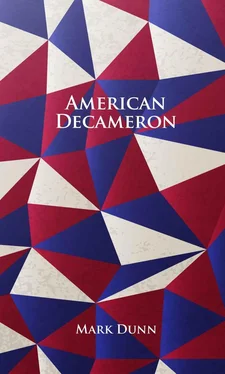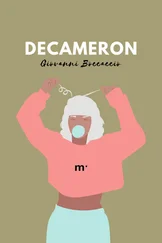And yet her hands, her own grip would not be strong enough. Abby had “hygienist hands”—often aching, nearly arthritic from the meticulous work they did — the professional downside to being a dental hygienist.
I can’t do it .
Yet there was something that she could do. Behind her was the drawer with the syringes. Not the innocuous air/water syringes of her trade. The kind that gave injections. Injections of Lidocaine. She threw open the drawer and grabbed the syringe. As Romey was tearing at the bib and flailing at the lamp that was still blocking his escape, she plunged the hypodermic into his chest and injected the air that was inside the syringe. Right where she knew his heart to be. He seized up and fell back into the chair. She grabbed a second syringe, just to be sure, and stabbed him again.
You can’t have too many embolisms .
The man was dead within seconds. Abby knew that poor dental hygiene can sometimes lead to heart disease and coronary-related death. But who knew that dental hygienists were capable of achieving that same end all on their own?
Loretta came. And Dr. Jensen. Ms. Purdy phoned the police. Abby was on the floor now. She sat on the floor looking up at the dentist and his assistant. At the man she had just killed, his body slumped in the chair, his limbs flopped out like those of a rag doll. Abby felt weak. But she no longer felt powerless.
To Dr. Jensen she said, in a soft, almost cheerful voice, “The patient is a good candidate for some reparative periodontal work. But at this point, I’d say he probably shouldn’t bother.”
The dentist gave no reply.
1999 CONSTRUCTIVE IN BOTSWANA
The locals called them the “White Campers,” though they didn’t do any actual camping until week three of their visit. They were in Botswana under the auspices of Habitat for Humanity’s Global Village initiative. The “R and R” component of the trip came only after two weeks of building cement-block houses for residents of the village of Serowe. The fourteen crew members, largely from the Northeastern U.S., finished four houses under the supervision of crew leader Jack Darrigan, a New York City building contractor, and started work on three others.
Each day they hauled blocks (called “bricks” by local builders), mixed mortar, raised wood and tin roofs, sang, prayed (Habitat for Humanity being a Christian organization), and then piled into their chartered mini-bus (called a “combi” by the natives), and headed back to the lodge, where they feasted on samp and beans, mabele, goat seswaa, and braised oxtail, and where they drank too much beer (Habitat for Humanity being a fairly liberal Christian organization).
The first two weeks of the trip had been physically grueling but invigorating. The White Campers had definitely earned their R and R: a visit to Moremi Game Reserve in the Okavango Delta in northwest Botswana. There they would take part in a four-day/three-night budget photo-safari with campfire grub and army-issue tents. Offsetting the bare-bones amenities were twice-daily trips through the savanna and wetlands; within the two-thousand-mile reserve, the Habitat crew members had the opportunity to view some of the most diverse and abundant natural habitat wildlife to be found anywhere on the continent. Zebras and greater kudus, cape buffalo, crocodiles, elephants, vervet monkeys, wildebeest, ostriches, giraffes…Ericka Prager tried to keep a list, but she eventually had to stop. The profusion of animal residents of the Okavango defied itemization.
Ericka was from Greenwich, Connecticut. She was a high school biology teacher. Her friend Soumeya Powell, a fellow teacher at the school, had asked her to come. It didn’t take much coaxing; Ericka was already familiar with Habitat from having worked on a couple of houses in Stamford. She was young. And she was adventurous.
Ericka was also single.
David Venetti lived in White Plains, New York. He was a computer programmer. David had never given much thought to taking a trip to Africa, but once he had started thinking about it — especially the chance to use his weekend carpentry skills for some purpose other than helping his father build a backyard deck — the idea began to appeal to him.
David was also single.
Through the two weeks of home-building, Ericka and David had worked happily side by side. A growing friendship soon moved cautiously into the realm of romance. At twilight on their last day in the village of Serowe, as the two stood on the porch of the cabin David shared with two other single young men on the crew, as David and Ericka stood listening to the herdsmen calling their cows in for the night, as they watched the obedient cattle, their cowbells jangling, lumber through the dusktide shadows to their night pens, David reached over and kissed Ericka.
She was receptive. And she now believed that there was a very good chance that she was in love.
In the bush plane that took the two (along with two other Habitat crew-members) over the salt pans to the Okavango, Ericka and David sat in the back seat. (Roy, who had won the seat lottery for this particular flight, was next to the pilot, and Leonard — poor sad-sack Leonard who could never catch a break — huddled in the far back with all the luggage). It was hard to speak over the drone of the plane’s engine. But Ericka tried, nonetheless. She wanted to find out more about David, who hadn’t been all that forthcoming with details from his personal life. This, obviously, wasn’t the time or place to draw him out, but she definitely needed to know more about him if this relationship was to move forward.
Or would it move forward? She just didn’t know. But for now, all Ericka said was, “It has a stark beauty, doesn’t it? The landscape.”
“That’s some desert,” said David, who had very little of the poet in him.

There were a few attempts at singalongs over the campfire that first night, but mostly the group chattered away like the little monkeys who lived in the nearby trees, discussing all that they had seen during their first mini road safari. There was wildlife around every corner, and the lions were especially accommodating, the regal males allowing their human visitors to rumble right up to their open dens and impose upon their privacy without even a half-growl of protest.
Asked Soumeya of her vehicle’s driver, a congenial young Motswana named Jacob, “Are they tame? Why don’t they get upset when we drive up to them like this?”
Jacob smiled. “They don’t see you as prey. They also know that they’ll have the chance to come visit you tonight.”
“What do you mean?” asked Leonard, suddenly troubled by the thought of lions invading the campsite later that evening. With his luck, Leonard was sure that he’d be the first camper to get eaten.
“It’s a good idea not to leave your tents once you go in for the night.”
That night, David left the tent that he was sharing with Roy. He came over to Ericka and Soumeya’s tent. “I’ve got Amarula, if you girls wanna come out and join me for a nightcap.”
Amarula had become the official cream liqueur of the Serowe Habitat build of August, 1999. It was made with the fruit of the African Marula tree, a tree which, as legend had it, was favored by elephants, who enjoyed guttling the fermented yellow fruit and getting drunk. Considering the low alcohol content of the liqueur and the prodigious body weight of your average African elephant, nobody believed there to be much truth to the legend.
A potential visit by the lions of Moremi — now that, of course, was good reason to stay in for the night.
Читать дальше













